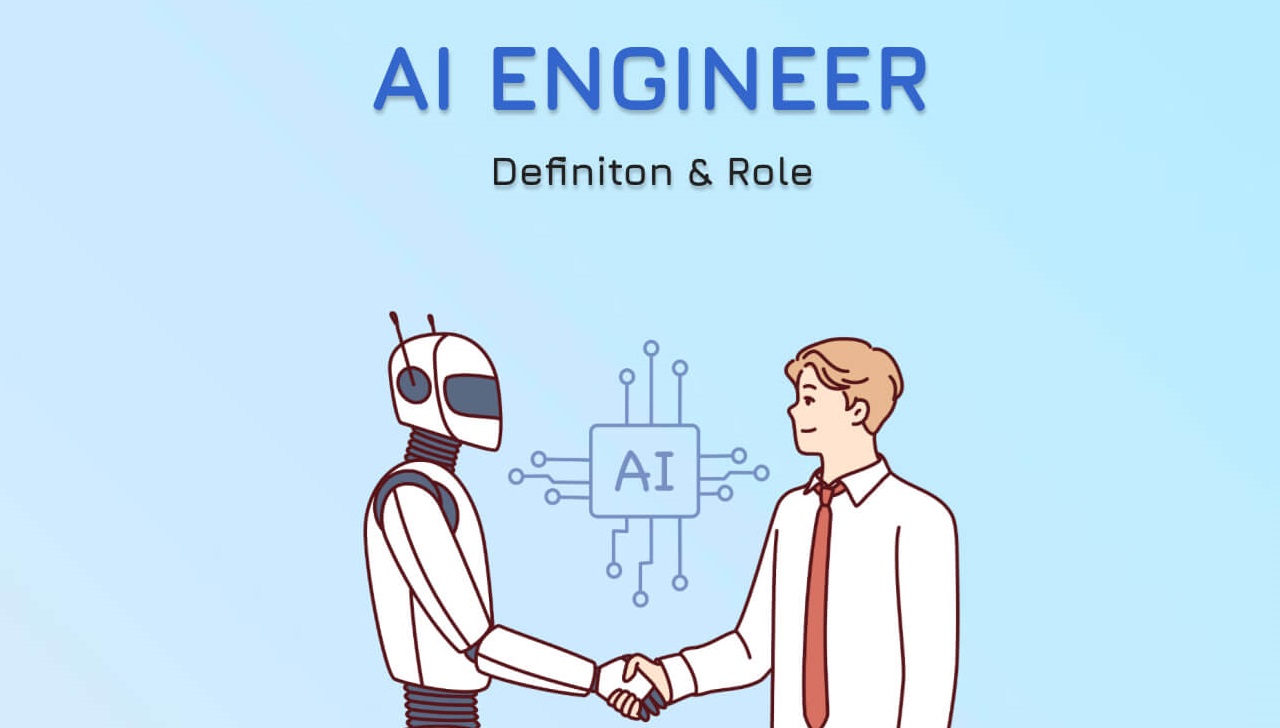In 2025, Artificial Intelligence (AI) has become a transformative force across various industries in India, reshaping business operations and creating new avenues for innovation. At the heart of this revolution are AI engineers, professionals whose expertise in designing and implementing AI systems has positioned them among the highest-paid individuals in the country. This article delves into the multifaceted role of AI engineers, the factors contributing to their lucrative compensation, and the broader implications of AI’s integration into the Indian economy.
Understanding the Role of AI Engineers
AI engineers are specialists who develop intelligent algorithms and models that enable machines to perform tasks typically requiring human intelligence. These tasks include learning from data, recognizing patterns, understanding natural language, and making decisions. The core responsibilities of AI engineers encompass:
- Algorithm Development: Crafting complex algorithms that allow machines to process information and learn from experiences.
- Model Training and Evaluation: Building and refining models to ensure accuracy and efficiency in tasks such as speech recognition, image processing, and predictive analytics.
- Data Analysis: Interpreting vast datasets to extract meaningful insights, which inform model development and business strategies.
- System Integration: Embedding AI capabilities into existing systems to enhance functionality and performance.
To excel in these areas, AI engineers must possess a robust foundation in programming languages like Python, Java, and C++, as well as a deep understanding of machine learning frameworks and data structures.
The Surge in Demand for AI Engineers in India

The increasing demand for AI engineers in India can be attributed to several key factors:
- Technological Advancements
With rapid advancements in AI, companies require skilled professionals who can develop and implement AI-based systems. AI applications such as machine learning, deep learning, natural language processing, and computer vision are now being used to automate complex tasks, analyze vast amounts of data, and provide data-driven insights. Businesses are investing heavily in AI to gain a competitive edge, and as a result, the need for AI engineers has skyrocketed.
- Data Proliferation
The digital revolution has led to an explosion of data generated through social media, online transactions, IoT devices, and enterprise systems. AI engineers play a crucial role in designing systems that can process, analyze, and derive meaningful insights from this massive data influx. Companies need AI professionals to help them manage and leverage this data effectively, leading to an increased demand for AI expertise.
- Industry Adoption Across Sectors
AI is no longer confined to the IT industry; it has become a core component of various sectors, including:
- Healthcare: AI is being used to improve diagnostics, develop personalized treatment plans, and automate administrative processes in hospitals.
- Finance: Banks and financial institutions use AI-driven models for fraud detection, risk assessment, and algorithmic trading.
- E-commerce: AI-powered recommendation engines enhance the shopping experience by suggesting products based on user behavior.
- Manufacturing: AI is optimizing supply chains, improving predictive maintenance, and increasing efficiency in production lines.
As industries continue to integrate AI into their operations, the demand for skilled AI engineers will only continue to rise.
- Government Initiatives and AI Development
The Indian government has launched multiple initiatives to promote AI development and adoption. Programs like “Digital India” and “Atmanirbhar Bharat” have encouraged investments in AI research, startups, and training programs. These initiatives aim to position India as a global AI hub, further fueling the need for AI engineers. With government-backed AI innovation centers and increased funding in AI-based projects, job opportunities in the field are expanding rapidly.
Compensation Trends for AI Engineers in 2025

Due to the growing importance of AI and the shortage of skilled professionals, AI engineers in India command some of the highest salaries in the job market. Salary packages vary based on factors such as experience, expertise, location, and industry demand.
- Entry-Level AI Engineers (Less than 1-2 years)
Fresh AI graduates or professionals with up to two years of experience can expect salaries in the range of ₹5,00,000 to ₹12,00,000 per annum. Compensation at this stage largely depends on the candidate’s technical skills, educational background, and hands-on project experience.
- Mid-Level AI Engineers (3-5 years)
AI professionals with three to five years of experience see a significant increase in their earnings, typically ranging between ₹12,00,000 and ₹20,00,000 per annum. At this level, engineers are expected to have expertise in AI frameworks, data science tools, and deep learning models, along with the ability to lead AI-driven projects.
- Senior-Level AI Engineers (5+ years)
Highly experienced AI engineers who have worked on complex AI models, led teams, or developed cutting-edge AI solutions can earn ₹20,00,000 to ₹40,00,000 per annum. Salaries at this level often depend on the individual’s specialization, their contribution to AI research and development, and the industry they are working in. Senior AI professionals working for multinational corporations or AI-driven startups may earn even higher compensation.
Sector-Specific Salary Insights
AI engineers’ salaries also vary significantly depending on the industry they work in. Some sectors offer exceptionally high salaries due to the complexity of AI applications and the level of expertise required.
- IT Services & Consulting
- AI engineers in IT services and consulting firms earn between ₹3.3 lakh to ₹27 lakh per annum.
- The salary range depends on the engineer’s role, experience, and the nature of AI projects handled by the company.
- Companies offering AI consulting services to global clients often provide higher salaries.
- Software Product Companies
- AI engineers working in software product companies earn between ₹3.5 lakh to ₹21 lakh per annum.
- AI plays a key role in software development, automation, and AI-powered applications, making AI expertise highly valuable in this sector.
- Internet-Based Companies
- Companies in the e-commerce, social media, and digital services space offer salaries between ₹4 lakh to ₹25 lakh per annum.
- AI engineers in this domain work on recommendation engines, personalized marketing algorithms, and user behavior analysis.
- Financial Services
- AI engineers in the financial sector earn between ₹4 lakh to ₹35 lakh per annum.
- AI is extensively used in algorithmic trading, risk analysis, fraud detection, and automated financial advisory services, making AI professionals indispensable in banking and investment firms.
- Emerging Technologies & Startups
- AI engineers in emerging technology companies and AI-driven startups earn between ₹5.4 lakh to ₹35 lakh per annum.
- Since AI innovation is at the core of these businesses, companies are willing to pay top salaries to attract the best AI talent.
Geographical Variations in AI Engineer Salaries

Location significantly influences salary structures for AI engineers in India:
- Bangalore/Bengaluru: Known as India’s Silicon Valley, offers salaries ranging from ₹3.1 lakh to ₹25 lakh per year.
- Hyderabad/Secunderabad: Compensation varies between ₹3 lakh to ₹20 lakh annually, reflecting the city’s growing tech landscape.
- Pune: AI engineers can expect earnings from ₹2.5 lakh to ₹17.3 lakh per year, indicative of the city’s burgeoning IT sector.
- Mumbai: Salaries span ₹2.4 lakh to ₹35 lakh annually, mirroring the city’s diverse industrial base.
- New Delhi: Compensation ranges from ₹3.4 lakh to ₹21 lakh per year, aligning with the capital’s expanding tech initiatives.
Pathways to a Career in AI Engineering
Aspiring AI engineers can enter this field through multiple pathways, each contributing to their expertise and job readiness.
One of the most fundamental steps is obtaining the right educational qualifications. A degree in computer science, information technology, data science, or artificial intelligence provides a solid foundation in programming, mathematics, and machine learning concepts. Some universities now offer specialized AI programs that focus on deep learning, natural language processing, and robotics.
Beyond formal education, specialized training plays a crucial role in enhancing technical knowledge. Many professionals opt for AI-focused certifications and online courses offered by platforms like Coursera, Udacity, and edX. These courses help learners acquire practical skills in AI frameworks such as TensorFlow, PyTorch, and Scikit-learn, making them industry-ready.
Gaining hands-on experience is equally important. Working on real-world projects, participating in AI hackathons, and interning with AI-driven companies allows individuals to apply their theoretical knowledge to practical problems. Open-source projects and Kaggle competitions provide additional opportunities to refine AI skills.
Finally, continuous learning is essential in the rapidly evolving AI landscape. AI technologies and methodologies are constantly advancing, and professionals must stay updated with the latest research papers, industry trends, and new tools. Engaging with AI communities, attending conferences, and experimenting with new AI models can help engineers stay ahead in this competitive field.
Challenges Faced by AI Professionals
While AI engineering is a high-paying and dynamic career, it comes with its share of challenges that professionals must navigate.
One major challenge is the complexity of AI concepts. AI is a vast field involving intricate theories in machine learning, deep learning, and neural networks. Mastering these concepts requires a strong grasp of mathematics, programming, and statistical analysis, along with persistent effort and problem-solving skills.
Another significant issue is ethical and bias concerns in AI models. AI systems often learn from large datasets, and if the data contains biases, the model may produce unfair or discriminatory results. AI engineers must work on identifying and mitigating biases to ensure ethical AI development.
The field also comes with high expectations and pressure. Businesses invest heavily in AI solutions and expect them to be efficient, cost-effective, and error-free. Engineers must meet these demands while adhering to tight deadlines, which can be stressful.
Additionally, AI technology is constantly evolving, requiring professionals to keep updating their skills. Engineers must stay informed about the latest algorithms, frameworks, and programming languages to remain competitive in the job market.
Finally, AI engineers must deal with data privacy and security concerns. AI applications often process vast amounts of sensitive data, making them vulnerable to security breaches. Engineers must ensure compliance with data protection laws and implement strong security measures to safeguard user information.
Why AI Engineering Has Become One of the Highest-Paying Careers in India

Several key factors have contributed to AI engineering becoming one of the most lucrative professions in India:
- Increased AI Adoption Across Industries
AI is no longer confined to tech companies. Industries like healthcare, retail, banking, education, and even agriculture are leveraging AI to improve efficiency and decision-making. This widespread adoption has escalated the demand for skilled AI engineers.
- Shortage of AI Talent
Despite the high demand, there is a limited supply of AI professionals with the right skills and experience. Companies are willing to pay premium salaries to attract and retain top AI talent.
- High Business Impact of AI
AI solutions help businesses automate processes, enhance customer experiences, and improve operational efficiency. Since AI has a direct impact on profitability and competitiveness, companies see hiring skilled AI engineers as a valuable investment.
- AI’s Role in Innovation and Research
AI is driving research and innovation across various fields, from drug discovery to climate change solutions. Engineers working on cutting-edge AI applications often earn higher salaries due to the specialized nature of their work.
- Government and Corporate Investments in AI
The Indian government and large corporations have recognized AI as a key driver of economic growth. Significant investments are being made in AI research, startups, and talent development, further increasing AI engineers’ earning potential.
The Future of AI Engineering in India
The AI industry is still evolving, and its impact on the job market will continue to grow in the coming years. Some expected trends include:
- AI Becoming Mainstream in More Sectors
Currently, AI is widely used in technology and finance, but its applications in education, law, and even creative fields like writing and filmmaking will expand, creating new job opportunities.
- Rise in AI Entrepreneurship
More AI engineers are starting their own AI-driven businesses and startups, working on innovative solutions tailored to India’s unique needs. These startups are attracting substantial funding and driving job creation.
- Evolving Skill Requirements
The skills required for AI engineering will continue to evolve. Engineers will need to specialize in areas like deep learning, natural language processing, and ethical AI to stay competitive in the job market.
- AI Regulation and Ethics Playing a Bigger Role
As AI becomes more integrated into daily life, regulations and ethical considerations will become more prominent. AI engineers will have to focus not only on technical expertise but also on responsible AI development.
Opinion
AI engineering has become one of the most prestigious and high-paying careers in India, but it is more than just a lucrative profession—it is a field that holds the key to shaping the future. The integration of AI across industries has already transformed the way businesses operate, and its influence will only deepen in the years to come. While the financial rewards are significant, AI engineering is not just about salaries; it is about solving real-world problems, driving innovation, and making a meaningful impact on society.
However, the rapid evolution of AI also presents challenges that cannot be ignored. Ethical concerns, biases in AI models, data privacy risks, and the ever-growing complexity of AI technologies require professionals to stay vigilant and proactive. AI engineers must take responsibility for creating fair, unbiased, and secure AI systems that benefit all sections of society. Moreover, the AI industry in India still faces a talent shortage, and without continuous learning and upskilling, professionals risk becoming obsolete.
As AI becomes mainstream, its impact will extend beyond traditional tech roles, influencing education, law, media, and even art. The AI revolution is just beginning, and those who embrace it with curiosity, adaptability, and ethical responsibility will lead India into a new era of technological excellence.
Final Thoughts
AI engineering has emerged as one of the highest-paying and most in-demand professions in India in 2025. With businesses relying more on AI for efficiency and innovation, skilled AI professionals are set to enjoy lucrative career opportunities. However, this field also comes with its challenges, requiring continuous learning, problem-solving, and ethical responsibility.
For aspiring AI engineers, the future looks promising. By acquiring the right skills, staying updated with advancements, and gaining practical experience, individuals can position themselves at the forefront of India’s AI revolution. AI is not just shaping industries; it is shaping the future of work itself.

